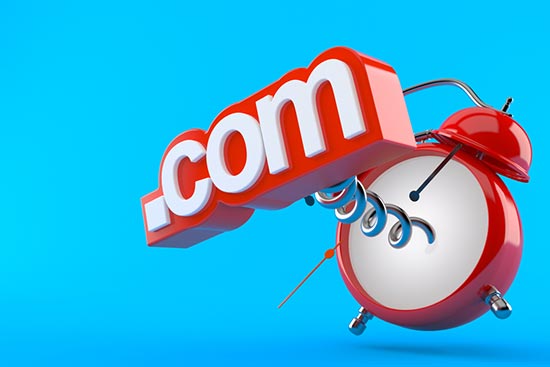Selecting a domain name may appear to be a simple process for any new business or personal website. Just come up with a clever idea and check if it is already registered with ICANN. However, things are not as simple as that with domain names. You need to take into consideration several legal issues in connection with the selection of domain names. Even when you think that you have a unique and great idea for the domain name that is still available, this selection can be tough to defend from a legal aspect. Here are some common legal problems that might arise while getting a domain name.
Avoiding the trademark infringement
One of the common and important risks while selecting a domain name before company registration is trademark infringement. Even in case, the domain name is available for buying and registration, it might already be trademarked. For example, if you register a domain name that is trademarked but not yet registered and purchased, you may lose it. The owner of the trademark may file a lawsuit and convince the judge or the arbitrator about the misuse of the domain name. He might argue that the customers will get confused about the quality and sourcing of the products and services.
A solution
A simple solution for avoiding this issue with the domain name is to verify whether the domain name is trademarked before buying it and registering it. The U.S. Patent and Trademark Office maintains a trademark database and this must be the first step in the process for you. Searching this database will provide requisite information about all trademarks that are pending registration. You need to search not just for the proposed mark but for other ones that are close to it logically such as spelling variants and synonyms. If the American trademark law is protecting the domain name, a trademark owner will have the right to challenge similar names or misspelled names by the competitors and others.
A case
There was a famous arbitration decision made by the authorities, about a person from Bangladesh. He tried to register a domain name called bestshopvac.net. There is a well-established vacuum cleaner maker out there called Shop-Vac Corporation. It filed an arbitration proceeding against this person. He was also using the Shop-Vac trademark for selling vacuums on Amazon without permission. During the proceedings, the person was allowed to keep the use of the domain name because the authority found that the term “vac” was close to the original product name “vacuum”. Even though the person succeeded in his attempt to keep the domain name, he had to get a lawyer for protecting the name.
What to do when somebody has already registered the domain name you want?
Cybersquatting many times causes the entrepreneurs and legitimate businesses to register the domain names with the business or entrepreneur name. There isn’t any exact definition for cybersquatting. But, when a domain name owner is registering and using a name solely to sell it for profit, it is possible to acquire this name as it is registered in bad faith. In such cases, the business or the person trying to use this domain name can either take legal action against the squatter under ACPA or get the matter arbitrated by ICANN.
Conclusion
All these issues arising while registering and acquiring a domain name will make you consider certain legal issues. These issues can guide your thinking especially when you are considering and ultimately deciding about a specific domain name. It is another matter of whether the domain name is available for purchase and whether it is registered. The selection of a domain name needs you to undertake careful planning. As we have seen, domain name registration is not an as straightforward process as it appears initially. You need to put some thought and planning into the purchase and registration of the domain name. It should not infringe on another trademark or be deemed to be cybersquatting. With the proper planning, you can find a suitable domain name for a website. But keep these issues in mind when you are looking for the right domain name for your business or personal site.









